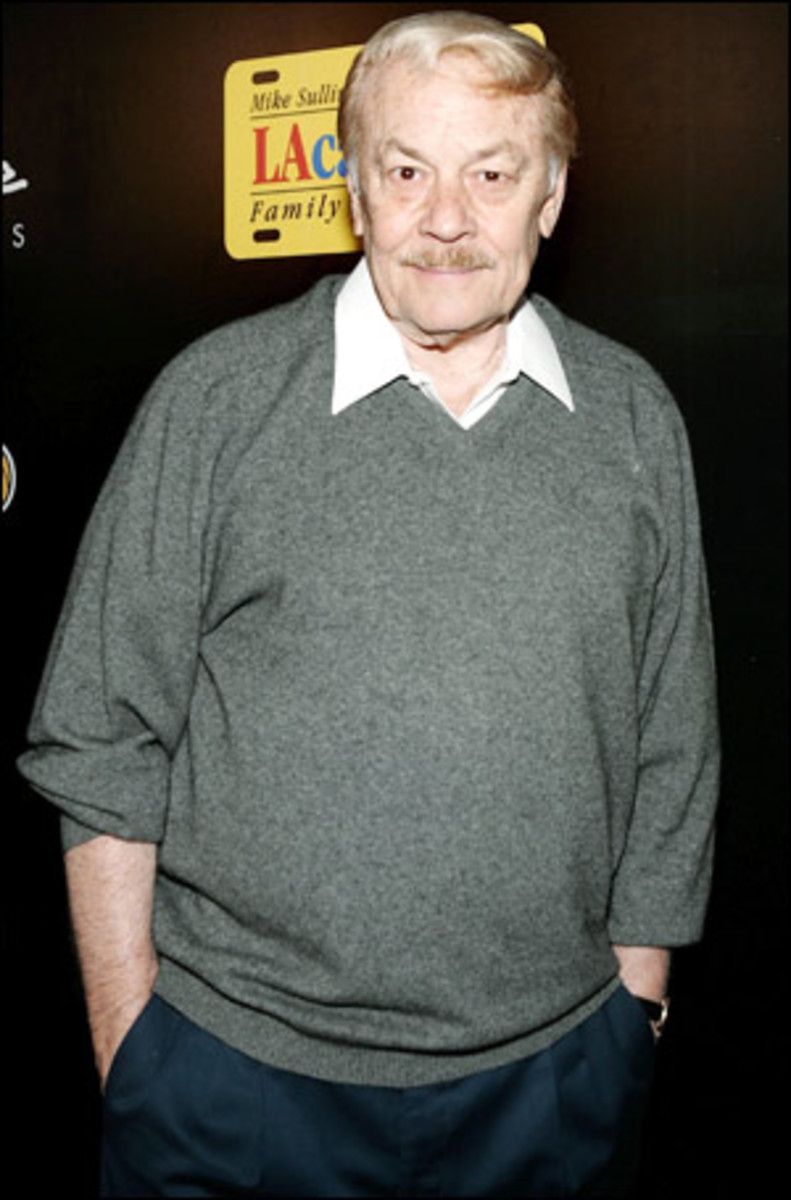Bad for business
The Lakers are a huge revenue producer with a league-leading profit margin in the $40 million range, according to a league insider. They've built their business on star power. Since moving to Los Angeles in 1960, the Lakers have had a future Hall of Famer in their rotation for a full season all but two years (1994-96).
Their only fallow period was 1991-96, when they went five seasons without an All-NBA player. It took an extraordinary summer by Jerry West to reverse the drought: He recruited Shaquille O'Neal, who remains the only free agent to ever lead his new team to a championship, and he stole Bryant with the No. 13 pick in the draft in a trade with the Charlotte Hornets.
I'm sure owner Jerry Buss remembers very well the quiet of the Forum after Magic Johnson's shocking retirement in 1991, when for five draining years the Lakers were irrelevant. He should also recall how difficult it was for West to pull off his Shaq & Kobe triumph, a coup the Lakers may never be able to recreate.
I'm not saying that Bryant won't be traded. But I maintain, despite the current acrimony, that it will be easier for the Lakers to build a contender around Kobe than it would be to find his replacement. Nothing less than an elite player will do for L.A. As good as Luol Deng may become, he would not meet the phenomenally high standard that Lakers fans have grown to expect. Omitting their post-Magic drought in the mid-1990s, this is a franchise that has flaunted an All-NBA performer -- essentially a top-10 player -- every season but one since 1960-61.
The Lakers' mystique is based on having a star like Kobe to drive up revenues. If Bryant leverages a trade, the obvious response for the Lakers would be a three-year plan to build up high draft picks and cap space in hopes of making a free-agent run at LeBron James or Dwyane Wade in 2010. But if Bryant couldn't win in L.A., then why should James or Wade think they can be happy with the Lakers either? No matter how the Lakers might proceed after trading Bryant, it's a longshot they'll find a larger-than-life star capable of replacing him.
Any elite player would be frustrated to play in Bryant's shoes right now, watching his prime years pass by without a chance at contention. That's why I insist this is not so much about Kobe as it is about the Lakers. Buss needs to reclaim leadership of his dysfunctional franchise. If that means luring back Jerry West, so be it (and if he winds up costing a ton, Dr. Buss should remember all of those years that West worked for cheap). West could restore Kobe's faith in team management as well as remind him that the Lakers are one of the few teams capable and willing to pay his $19.5 million salary while absorbing the luxury tax to build a championship team around him.
As Johnson pointed out last week, there are too many voices claiming to speak for the Lakers' front office between GM Mitch Kupchak, VP Jim Buss (the owner's son), coach Phil Jackson and his girlfriend, Jeanie Buss (the owner's daughter and a team executive VP) and Magic himself (a VP and minority owner). It's such a mess that they may eventually consume themselves by giving Bryant away. But I'm guessing that their owner is neither so derelict nor nepotistic as he appears to be. He has to know that the Lakers without Kobe won't be the Lakers anymore.
Jerry Buss has more to lose than anybody. Among most of his fellow owners, Buss is the true champion of the league because he banks that $40 million annually. But they won't look up to him much longer if he squanders his big money-maker by dumping Kobe.
I'm telling you, they can't afford to trade him. As hard as it may be to keep Bryant, it's going to be much harder to replace him.
It isn't too late to keep the adulation and money coming in. Buss needs to bring order to his front office and keep his star player happy by winning, which is the same formula Buss followed when he was the winningest owner in the NBA not so long ago. In this case, the employee is waiting for leadership from his owner. If Buss has lost his instinct for success, then how can he shift the blame onto Bryant for wanting to leave? Who would want to work for a boss who has forgotten how to act in his own best interests?





